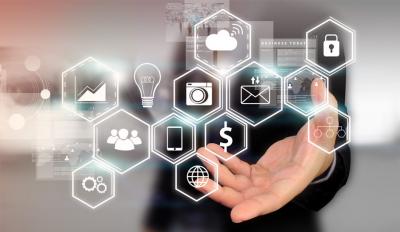6 Internet Predictions You Don't Want to Miss
- BY Sonal Khetarpal
 In Technology
In Technology 10229
10229 0
0

Pew Internet Project, a nonpartisan American think tank, along with Elon University’s Imagining the Internet Center published a report called, "Digital Life in 2025" on the future of the internet. This report is an analysis of opinions about the likely expansion of the Internet of Things, a catchall phrase for all kinds of devices, appliances and wearable material. Around 1,600 experts were asked an open ended question about the widespread effect of the Internet of Things on the everyday lives of people by 2025. About 83 per cent of the 1,600 industry experts surveyed agree that there will be a widespread growth of Internet of Things which will have beneficial effects. Another major point of consent among the experts was that there will be amplified connectivity which will influence almost everything and everyone. Six major themes arise out of their responses:
1. Huge advancement in technology between now and 2025: Experts believe infrastructure and adoption of Internet of Things will substantially progress in the next ten years. More objects, appliances, cars and other parts of the environment will be connected to each other. It will have many clear advantages, and it will far outweigh the problems it has caused. Paul Saffo, managing director of Discern Analytics adds, “The biggest shift is a strong move away from a single do-everything device to multiple devices with overlapping functions and, above all, an inter-relationship with our other devices.”
2. Privacy is a big concern: The concern of privacy was raised by many. Nick Wreden of the University of Technology Malaysia in Kuala Lumpur wrote that there will be no privacy, even in the jungle or anywhere away from civilisation. He adds, conversations, which include not only words, but also movement, eye contact, hearing, memory and more, are such holistic experiences that people will not give up gadgets that connect them to internet easily. A few survey respondents also mentioned that it will become necessary to find ways for people to be able to disengage from the network, to stop being a node that constantly sends and receives data.
3. Information interfaces will advance, especially voice and touch commands. But few expect that brain-to-network connectivity will become common: As per Ola Kristensson, lecturer in human-computer interaction at the University of St. Andrews, UK, there will be advancement in small-screen communications. He predicts, writing on mobiles will be as fast as on a keyboard. And, wearable sensors and mobile eye tracking will be used by systems to learn about users’ context: where are they, what are they doing, and what are they communicating. There will be better sensors, more advanced machine learning algorithms, and a better understanding of human capability. Gesture and speech recognition would evolve so much that users will be able to express themselves quickly, even if they are mobile or encumbered. However, he adds, brain-computer interaction (BCI) will not be feasible for able-bodied users, most likely because efficient BCI will require invasive equipment to be installed.
With the widening digital divide, people left behind will become increasingly invisible.
4. The large internet network may break down too: Jerry Michalski, founder of REX, a think-and-do tank for leaders to navigate massive change wrote, the internet of things is complex and it will break over and over again. Also, the devices exposed on the internet will be vulnerable and prone to unintended consequences. They might even do things that nobody designed them for, mostly undesirable. He adds that humans aren’t as evolved yet to create apps and services useful for humanity which he explains by giving the example of Google Glass. It attracted backlash even before it was being used by people. He concludes, this kind of surveillance makes the society oppressive, and not liberating. And, there isn’t a possibility of a comfortable truce between the advocates of privacy and the ‘screen everything’ crowd.
5. There will be a wide digital divide between the connected and the unconnected or those who don’t want to be connected: K.G. Schneider, a university librarian wrote that these devices primarily signify a growing gulf between the tech haves and have-nots. That said, he adds that these devices are interesting and important. Students today feel burdened if they don’t have home internet. There will be an expectation that successful living as a human will require being equipped with pricey accoutrements. He expresses concern that with the widening digital divide, people left behind will become increasingly invisible and will be seen as less than full humans.
6. Internet of Things will redefine the relationships people have with each other and also with organisations: Bryan Alexander, senior fellow at the National Institute for Technology in Liberal Education, presents a clear picture of how adoption of Internet of Things will evolve mostly because of its convenience. Wearable devices makes things easier for users which is reason enough to drive its rapid adoption. Companies will also benefit from Internet of Things to collect customer data, and for providing services. The last point he makes is about how these devices will change the ways of socialising. Personal space will expand to cover the world, at the same time contract due to too much information. There will be new ways of interaction between public and private spaces, with writing on fridges and projection on cabinets, he says.





























Add new comment